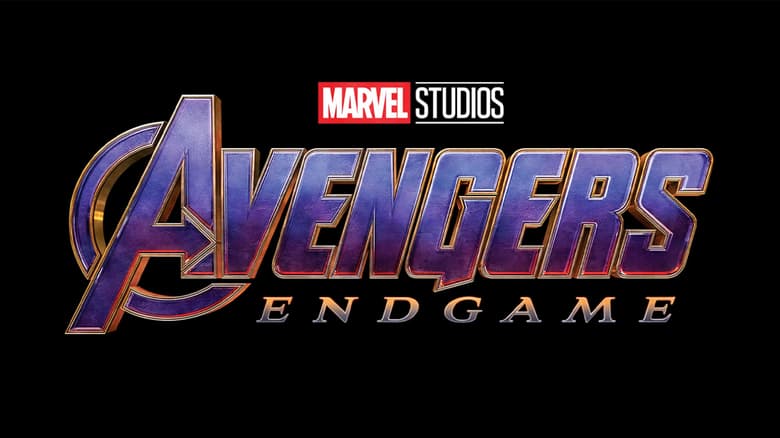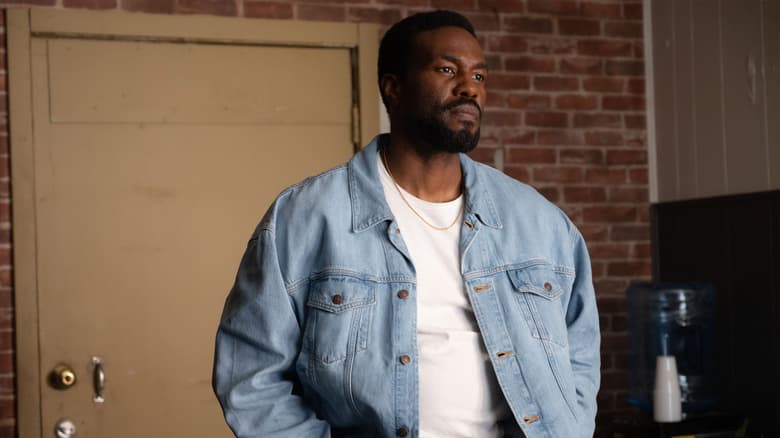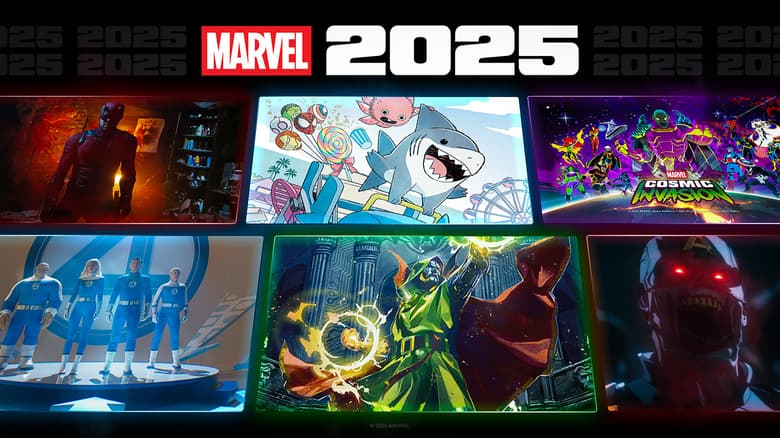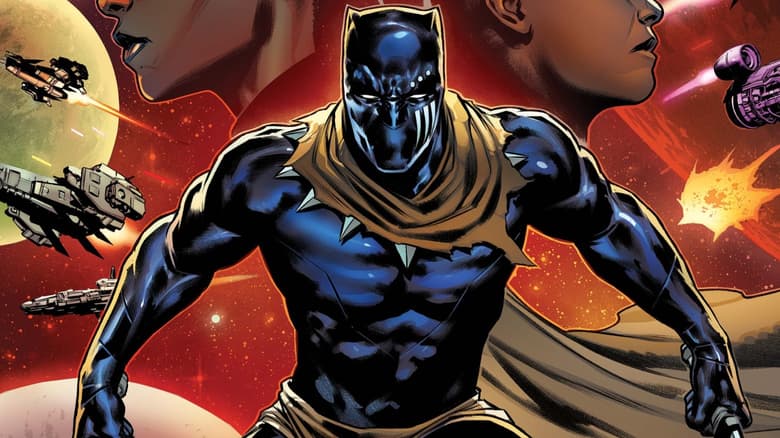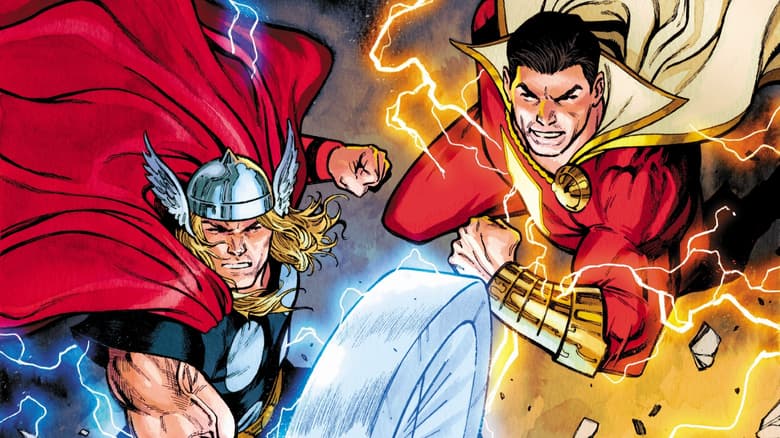Bringing Unity to the Squad in Uncanny Avengers
Artist Pepe Larraz pits Earth’s Mightiest Heroes against The Red Skull!
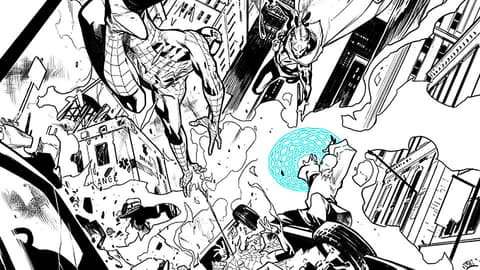
Civil War II might have concluded but the shockwaves of the conflict continue to ripple throughout the Marvel Universe.
In the pages of UNCANNY AVENGERS by Gerry Duggan and Pepe Larraz, the Unity Squad must deal with Captain America’s rejection of them even as they battle one of their deadliest and most persistent foes: The Red Skull!
We talked with Larraz about getting into the Skull’s demented head, bringing the team together, and the important role music plays in his collaborations with Duggan!
Marvel.com: Civil War II wreaked a lot of havoc on hero relationships in the Marvel Universe. Is that something that comes through when you’re bringing this disparate group of characters together?
Pepe Larraz: I believe that the Unity Squad was created to prove that Inhumans, mutants, and Avengers can work together for a greater good. I think the fact of them being rejected by Steve Rogers affected them in a much bigger way than the rest of the events of Civil War II. Steve Rogers was the one who gives them legitimacy, the head of the Squad, and without him they had to find a new identity as a team.
Civil War II affected this series directly in [issues] #15 and #16, and I had to catch up with the event very fast; not only what had happened to Bruce Banner but also how the characters felt about what happened to Bruce Banner. Gerry focused on that in a beautiful way at the end of #16.
Marvel.com: The current story finds the team facing off against The Red Skull. How do you balance incorporating classic elements with putting your own spin on him?
Pepe Larraz: When you face a character you’ve never drawn before, the first thing you’ve got to do is try to understand him. The acting, the movement, the clothes, all of that comes from understanding who he/she is, what he/she wants, and what is he/she willing to do to get that.
In the case of Red Skull, he has a huge story behind him, so I focused on his essence. He’s a Nazi; he’s been fighting all his life against the Avengers and all that the Avengers mean, and finally he’s winning. All his acting is a reflex of that; he never loses his nerve. Everything is always under his control and he is enjoying it in a sadistic way. I wanted his face to look a bit like a mask. You see something horrible on his face, but I wanted you to fear more the eyes underneath. That’s where the real monster is.
Marvel.com: Since the launch of UNCANNY AVENGERS the team has gone up against their fair share of Earth-threatening events. Do you enjoy digging into all of those epic action scenes filled with powers and destruction?
Pepe Larraz: What really amazes me is the measure of time in an Avenger’s life. The three arcs I’ve worked [on] this year—each one happened in one night. In one night they start fighting monsters in the NY subway and they end near the surface of the Sun. In one night they go to Japan, fight against the Hand and an undead samurai Hulk and recover Bruce Banner’s body by the sunrise. When you are an Avenger you can never be sure of arriving for a date on time, because one night can start with pizza and a film and end with stopping meteors in one of Saturn’s rings. I’m enjoying it a lot. I’ve destroyed New York’s streets twice in this last year. Not even Godzilla can do that.
What is important to me is that the environment feels real to the reader and I put a lot of effort on that. I study lots of references to draw the backgrounds. The point of Marvel comics, in my opinion, is to have super heroes on your street. It must not feel like an invented street of an invented city; it has to feel real.
Marvel.com: You’ve been working on this team on and off for a while now. Have any of the characters offered unexpected challenges or surprises as you’ve gotten more familiar with them?
Pepe Larraz: The character most difficult for me to draw is Captain America. He’s so noble, and official that it took me a lot of effort to turn him into a human being, not a marble statue. In the whole series I made like, maybe two drawings of the Captain which make me feel satisfied. All the contrary happened with Rogue. I grew up reading X-Men so drawing Rogue was a dream. It felt natural to draw her. I wanted to contrast a fragile appearance with her superhuman strength.
For Wasp I used Audrey Hepburn as reference. She has to be stylish. I needed some drama to get the hang of Torch and Doctor Voodoo. You need to crack the character a bit to see what’s inside. Synapse is still a mystery to me. Same happens with Cable, but I think it is part of his charm. You never really know what Cable is able to do, or where he comes from. You can’t look inside him.
With Deadpool I wanted to escape the comedy at some point. Everyone makes a funny Deadpool. I wanted to remind the reader that yes, he’s a clown, but he’s also a trained assassin, and he can be deadly dangerous. I hope I haven’t done a boring Deadpool, though.
Marvel.com: Along similar lines, how has your working relationship with Gerry changed over time?
Pepe Larraz: I knew little of Gerry’s work when we started working together, but he grabbed me with the first two issues. Almost all of the two issues were about the Avengers talking. The dialogue was so fluid, and everyone was in the right place, all the characters so well defined, while Gerry was building momentum. You almost could chew the tension. Then the action came and it was enormous, and it hasn’t stopped since #11!
We haven’t talked too much during the year, because we are both swamped by work, but we send each other several emails every month. We made something very useful in terms of writer-artist relationship: We both love soundtracks, and we recommend soundtracks to each other. That’s perfect to suggest the general feeling of a scene, the rhythm, the emotion. That helped me a lot. Maybe we should publish the soundtracks of [UNCANNY AVENGERS].
Coming February 22, UNCANNY AVENGERS #20 by Gerry Duggan and Pepe Larraz sends the Unity Squad on another very bad day at the hands of Red Skull!
The Daily Bugle
Can’t-miss news and updates from across the Marvel Universe!
